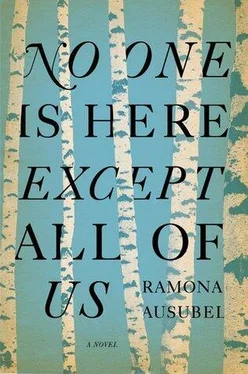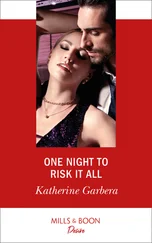Isaid to Solomon, “Can I carry you?”
“I’m too big,” he told me, sorry for it.
“Just to that turn in the road,” I promised. I bent down and scooped him up, carried him beyond the bend where, on either side of us, flat fields of grass aspired to be endless. My throat was hard and dry. He did not point out the distance we had come or the difference between his own weight and the weight of a baby. He willed himself lighter, as I had asked the little one to do. “Be a baby,” he whispered.
“Be a baby,” I whispered back, not to him, but to myself, both of us wanting to start over again, new and unknowing.
In the tall grass: a white farmhouse with a barn next to it. Not a temple, just a barn. This time, instead of passing by in the trees, hidden, I began to walk toward its wide brown door. It was due west — every rule broken at once.
“We are hiding,” Solomon reminded me. “We should wait until night to sneak into the barn.”
“We are going inside,” I said. “Today we are going inside.”
Solomon’s voice cracked — a clean fissure down the middle — when he asked if there might be food inside. When I had turned off the road, I thought I would walk to the barn, and we might steal some eggs, sleep in the hay. When the word “food” fell out of Solomon’s mouth, he looked at me, startled, apologetic for having admitted a deficit, as if this made him a traitor to our little army. In an instant, I adjusted my aim to the door of the farmhouse. Before us was a path, marked for human feet by white stones laid in lines. It was meant to be followed, but not by us.
“But what if it isn’t safe? What if they hate us? Should I run? Should I hide?”
There was a silver knocker in the shape of a fist. I shut out Solomon’s river of questions, held that hand and asked to be let inside. A man answered, looked at us and closed the door back to a crack. I flinched away from the smack I might receive. “What are you?” he asked in Russian.
“This is my son, I’m his mother,” I said, trying to make sense. The man looked Solomon up and down, studying his every inch. He kneeled down and took Solomon’s arm, measuring it with the bracelet of his fingers.
“What are you doing still alive?” he asked. There wasn’t answer for that question, so I said nothing. “Are you lost?”
Certainly we were not found, I thought. We had no idea where we were, but neither did we have any idea where we wanted to be. Must a lost person have a destination in mind? I gave no answer to the farmer’s question. He looked at me and he must have seen something hopeless because the man opened the door into a kitchen with a heavy table and chairs, pots hanging on nails on the wall, an enamel washbasin and a cutting board with the orange fingers of carrots waiting to be sliced. There were walls, high and flat, made of wood. There was a floor, low and flat. A pile of folded clothes, all bright white, sat on the table, clean and waiting to be put away. On the black stove was a big silver pot, steam escaping. The smell made even my marrow ache. A woman stood over the carrots with her hand on her hip, looking at the broken people entering her life.
Solomon pushed close to me and said, “We are inside a house.”
“That’s right.” The farmer gave Solomon a warm smile.
“You let them in?” the woman asked.
Shame slipped her fingers around my neck and squeezed. My face felt hot. I wanted to apologize for bothering them and leave. Not back to the bruised world this time, but a day-to-day place, the decades ahead, Solomon’s future unfolding one unnotable hour at a time. I wanted that possibility to exist.
“I’m sorry, I don’t want to put you in danger. We should go,” I said.
“In danger?” the farmer’s wife said, and squinted.
I did not know the real stories, only the fear of what they might be. Only the banished, threadbare memories. Only the radio’s babble. “We shouldn’t have come.”
“Yes,” the farmer said, something between a grimace and a grin on his face. The owner of a gruesome tale, he cracked his knuckles while the audience waited.
“They will never manage it,” the farmer’s wife said. “It is not possible to do what they say they will do.” Someone, somewhere sharpened his dagger. He put his hands into long black gloves, unrolled a map of his expanding territory.
“Maybe.” The farmer shrugged. “So far, they are managing.”
“What do they say they will do?” Solomon asked.
“They say they will kill certain kinds of people,” he told us. “All of you. In the name of improvement.”
The farmer’s wife shushed him. “But you are safe here,” she said, opening the lid of the big silver pot and letting the smell saturate the room. “For now,” the farmer said. I saw that Solomon’s eyes were watering. The farmer’s wife spooned soup into bowls. “Sit down and eat. Eat as much as you can.” Chairs were beneath us, a floor, the table’s surface made itself available to our arms and our bowls. “Look at how skinny you are,” the farmer said. “You poor, poor boy.” He shook his head at me, scolding.
The soup was unbearably warm. It made me feel faint. The world slowed down. My heart was a throng of people, fists raised in the air. There was butter to put on the bread. Solomon was silent. He did nothing but deliver himself food. He delivered and delivered and delivered, sucking and chewing and sucking. The farmer could not take his eyes off my son, who was filling his little body with the man’s salvation. His wife trained her eyes on her own supper. No one spoke.
And then Solomon turned to his side and threw everything — absolutely everything — back up. The soup looked the same on the floor as it had in the bowl. I started to cry. I knelt down and began to scoop it into my shawl. “I’m sorry. I’m sorry,” I kept saying, “he didn’t mean it.”
Solomon looked stunned. “I didn’t mean it,” he said. “I can eat it again.”
The wife came around the table and said, “No, stop right now. Do not save that.” The farmer blotted the corners of his mouth before placing his spoon carefully on the table. He had ceased to enjoy his supper.
I said, “I’m sorry. I’m so sorry. We won’t waste it.” Solomon picked up his bowl again and began to eat. He ate even while he watched me try to gather the bits of potato together.
“Stop right away,” the wife said. “Please stop. There is more food. Please.” I lay down on the floor and cried. I shook myself out. I was stupid and useless at trying to stop myself.
“What should we do?” the farmer whispered. In the question was a story that did not end well — the dirty woman come in from the war, sick, dying, the whole house stinking like her rotting body, her rotting soul.
The farmer’s wife filled Solomon’s bowl with fresh soup. She brought warm water from the stove and cleaned the floor, took my shawl away. From the corner of my eye I saw her open the front door and throw it outside. Garbage.
“Eat,” she said to the boy, “try again. Your body didn’t know what to do.” Solomon ate slowly this time, smoothed the soup into his mouth and sucked it through his teeth. In each mouthful I heard the weeks I had allowed him to nearly starve. Solomon watched me but he kept eating.
I felt the farmer and his wife’s eyes on me. Is she insane? Is she sick? The boy is all right, handsome even, but what will we do with his mother?
Only after my son had eaten his second dinner, his eyes heavy and low, did the farmer kneel at my side, slip his arms under my back and lift. I could have stopped him, gone rigid, kicked. I could have made it clear that I was operating under my own power. But I let him take me from the floor in his arms, a body folded in on itself. I was soft, blind, compassless. My lids slipped open for a second and the farmer’s eyes were waiting for mine, full of light and lightning. They told me I had one chance to deny a series of facts: You are weak and confused, ill-equipped. You are potentially crazy. You are in danger and in need of charity. You belong to a dangerous tribe. Your life, as far as it still exists, is owed to my kindness. You will do what I want.
Читать дальше












